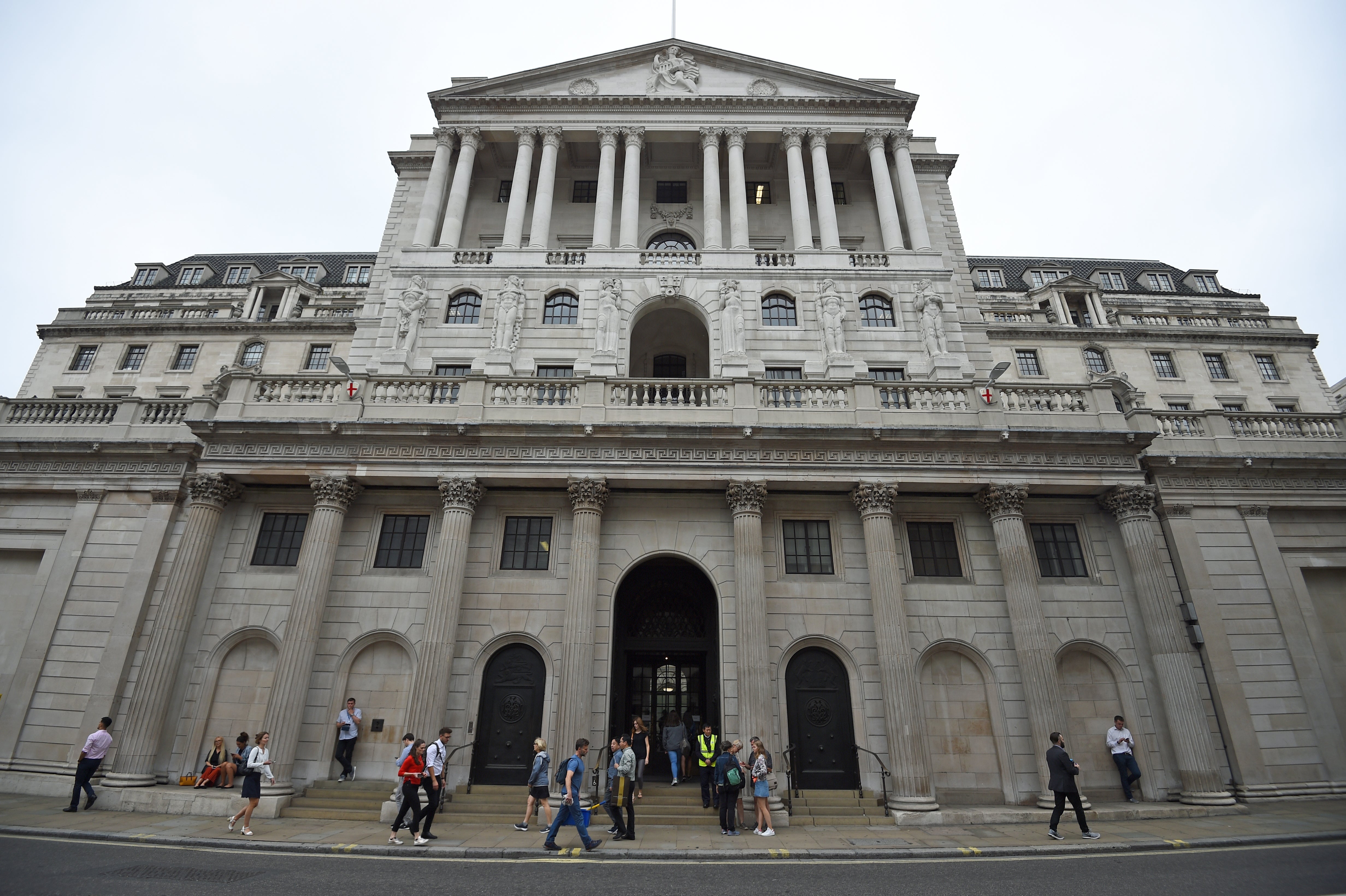If the Bank of England doesn’t push up interest rates it will merely be delaying the inevitable
The pace will vary from country to country – but market pressures will force them to keep moving up, writes Hamish McRae


Stand by for rising interest rates. I’d say It is about even odds as to whether the Bank of England starts to push up rates at its Monetary Policy Committee (MPC) meeting this week. If it does not move then, expect it to do so by February at the latest.
The first move, the markets expect, will be from 0.1 per cent to 0.25 per cent, so still very low. But the big question is not when rates rise but how high they have to go over the next three or four years. If inflation through this winter hits 5 per cent as measured by the consumer price index, and perhaps 6 per cent on the retail price index, the idea of interest rates being less than 1 per cent is ridiculous.
It is a huge incentive to borrow. Just last week Santander, the Spanish bank that bought up a string of building societies, including Abbey National, Bradford and Bingley and Alliance and Leicester, reported that it was dealing with the strongest demand for mortgages that it had seen for “many, many years”. Its chief executive, Nathan Bostock, said that demand was “phenomenally strong”, with homebuyers particularly wanting to have five-year fixed-rate deals.
Then, surprise, surprise, by Friday several banks had started to cut back on fixed-rate deals, either putting up the charges or increasing the rate. Still, many deals are on offer, and it is case of “hurry, while stock lasts”.
Homebuyers, in my view, are wiser than those members of the MPC who are apparently still resisting an early increase in rates. The argument of the so-called doves is that the current burst of inflation will subside and that it is more important to keep the post-pandemic recovery moving. It is a perfectly respectable argument made by clever economists. But I think it is wrong.
The Bank of England is not alone here. The European Central Bank decided last Thursday to hold interest rates and keep buying bonds, thus feeding cash into the European economies. It did that despite soaring inflation, which in Germany has reached 4.5 per cent, the highest since 1997. ING Bank commented that German inflation was now unstoppable and could reach 5 per cent later this year.
The Federal Reserve has been in similarly cautious mode. Its chair, Jerome Powell, said last week: “I do think it’s time to taper; I don’t think it’s time to raise rates.” Given that US inflation, at 5.4 per cent, is even higher than in the UK or Germany, and that the Fed has a target of 2 per cent, that does seem a pretty complacent response. Alan Greenspan, chair of the Fed from 1987 to 2006, evidently thinks so. In a note put out by Advisors Capital Management, he wrote: “The tendency toward inflation remains, unfortunately, well above the average of about 2 per cent over the past two decades.”
If he is right, the world is facing a collective failure by the monetary authorities. What happens next?
Well, I do not expect much to happen before Christmas – or indeed through the winter. It will be well into next year before it becomes clear whether the surge in inflation really is a temporary one. Come the summer we will all know much more. Either inflation will have come back towards the target of 2 per cent or it will be clear that it has settled at some higher level, say 3 per cent or 4 per cent. My guess is that 4 per cent is more likely than 2 per cent. If that is right, the world will set off on a long period, perhaps several years, of steadily rising interest rates.
The pace will vary from country to country, and while the central banks everywhere will try to slow down the increases, market pressures will force them to keep moving up.
How high? Well, back in 2006, when UK inflation averaged 3.2 per cent, the Bank’s base rate started the year at 4.5 per cent and ended at 5 per cent. By July 2007, they reached 5.75 per cent. Mortgages were typically a percentage point higher. I can’t see the peak of this coming cycle as high as that, but three years from now rates could easily be 3 per cent or 4 per cent. In other words, they could be massively higher than now.
This may not happen. Nothing in financial markets is certain. But there does seem to be a clear economic cycle, and that will drive the cycle in interest rates too. If the Bank of England does move rates up this week, this will be the first of many. If it doesn’t, it will merely be delaying the inevitable.



Join our commenting forum
Join thought-provoking conversations, follow other Independent readers and see their replies
Comments